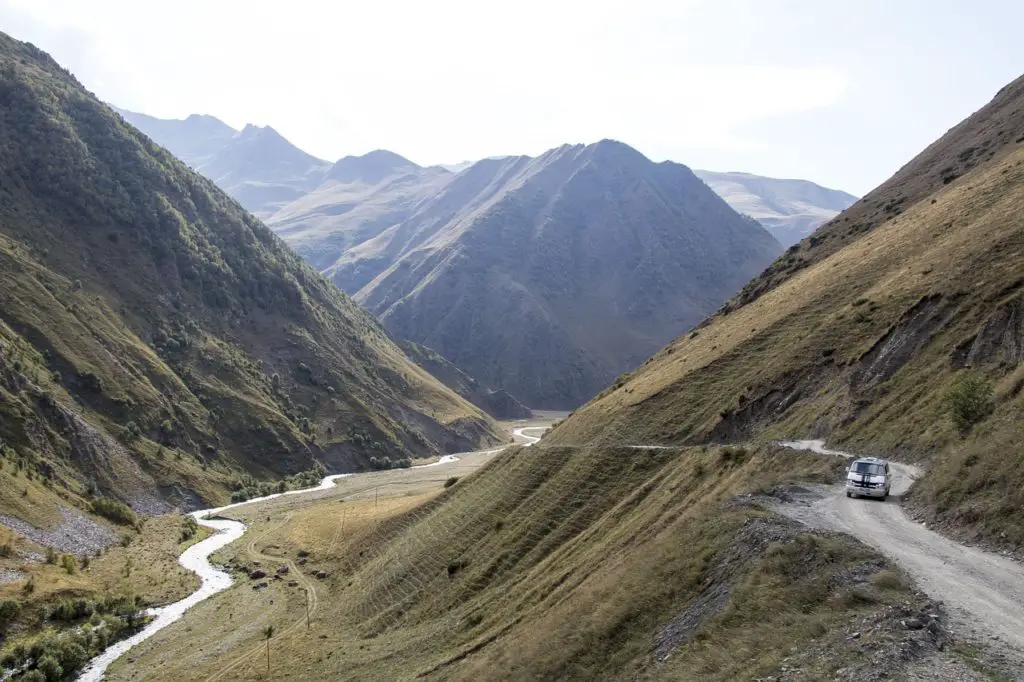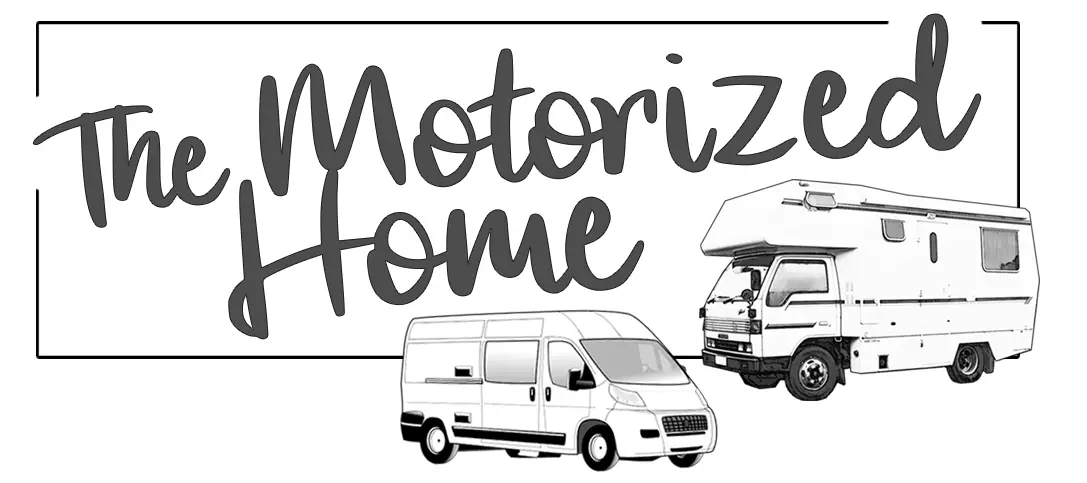
5 Things I Wish I Had Thought About Before Living in a Van (And Kitting One Out!)
This post may contain affiliate links to support the upkeep of this blog - at no extra cost to you! Please read my disclaimer for more info.
All those beautiful sunsets, bikinis and surf boards! Van life might seem like a dream when you see it through Instagram, but the reality isn’t always the same (even though it’s pretty close though..).
What comes to choosing the van, there are so many options out there and it might be tricky to find the one you have always been dreaming of. We were in the same situation once and finally, after trial and error, we found the right one for us. I’m going to share some tips with you so you can avoid the same mistakes we did!
You might also be interested in
7 Ways to Stay Clean Whilst Living the Van Life
The Essential Kitchen Accessories Guide
The Ultimate Van Life Laundry Guide
1. What is the right size? Are you going to live in your van full-time?
Are you planning to live in it full time, for a short period of time or purely reserve it for odd weekend?
If you are intending to have your camper van for occasional use mainly, you will most likely be fine with just a usual size, small cargo van like Toyota Liteace, Mazda Bongo, Mercedes Benz Vito. As you probably won’t have much stuff with you, the fuel costs will be lower and storing the camper will be much easier as it fits easily in a normal sized parking spot/garage. The initial purchase cost will also be significantly lower.
In a van of this size you are usually only able to fit in a bed and small kitchen, so they are easier to camp in places where a toilet and a shower are easily accessible.
If you are travelling in New Zealand, bear in mind that you won’t be able to make a van of this kind self-contained if you can’t use your toilet when the bed is down!
Below is photo of our Nissan Vanette which was our first van in New Zealand – it was a great little van, great for weekends and small trips but too small to live in full time. In order to make it self-contained the toilet was built next to the kitchen so one could “use it when the bed was down” – as you can imagine, not the most practical solution…
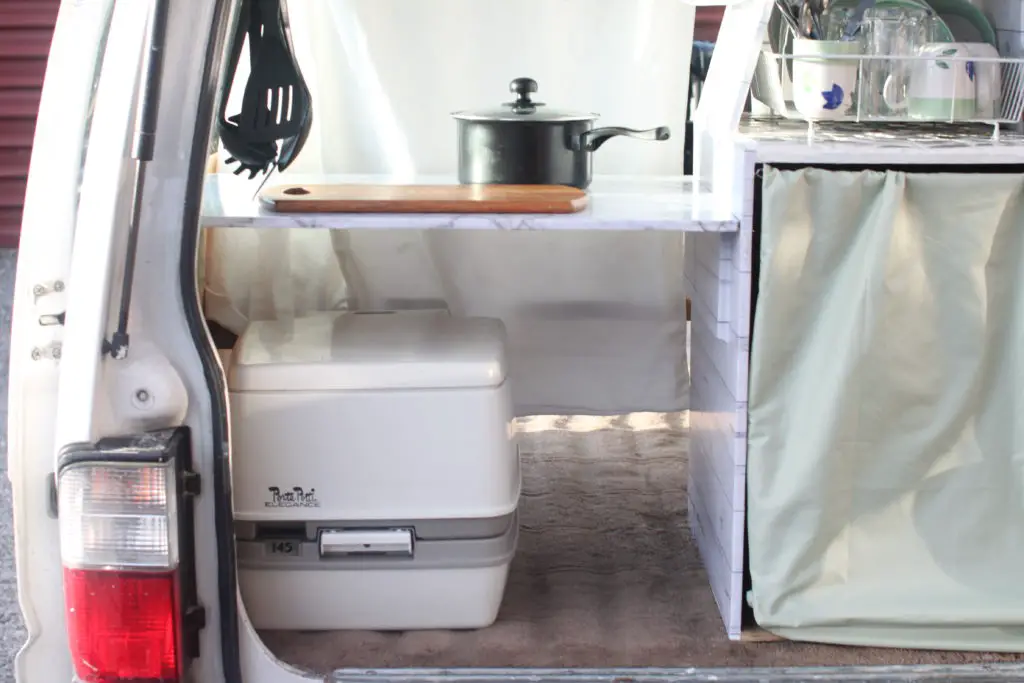
So if you are planning on extended period of time in your camper van, a normal van could still do, but I would recommend looking into long wheel based vans, so you can plan your living space more to your needs and fit everything in easily.
If you are planning to live on one, believe me, the bigger the better! We lived 6 months happily in our long wheel base usual height cargo van, but if we were going to live on it any longer, I would have without question wanted to swap for a pop-top or fixed high top.
Good options are for example Volkswagen pop-tops, Ford Transit, Mercedes Benz Sprinter, Citroen Jumper.
2. Think about your budget and skills.
Great, you have decided the kind of van you need. Now is the time where your budget comes into the picture. Are you good with your hands and/or learn quickly? If you said yes, then no ifs ands or buts about it, build out your own! You can build your van exactly to your needs, decorate it to your taste and when you know you have built it all by yourself, it feels properly like a home of your own.
To be honest, we didn’t know much about building at all when we started out. In fairness our van was meant mainly for summer months in New Zealand so we didn’t bother insulating our van, which is pretty essential if you are planning on living in yours in a colder climate. Basically with a simple camping setup you can easily get by with the price of the van + $700/£500, whereas a proper full setup with insulation, electrics etc. can easily come up to $20,000/£15,000 or more. Only the sky is limit, the more you can do yourself and more time you have, the cheaper it will be.
If you are not the most confident to build the van yourself, you could check out one of the many companies out there who fit the interiors for you, for example in UK Clearcut Conversions.
The van itself is also a big cost factor. Older van with higher miles will be less expensive, but it might need repairs soon and the miles per gallon might be lower/litres per kilometre might be higher than in the newer vehicles.
It is highly recommendable to get your van checked before purchase. It might cost you a bit but it will be way less expensive than running into some undesirable major repairs later.
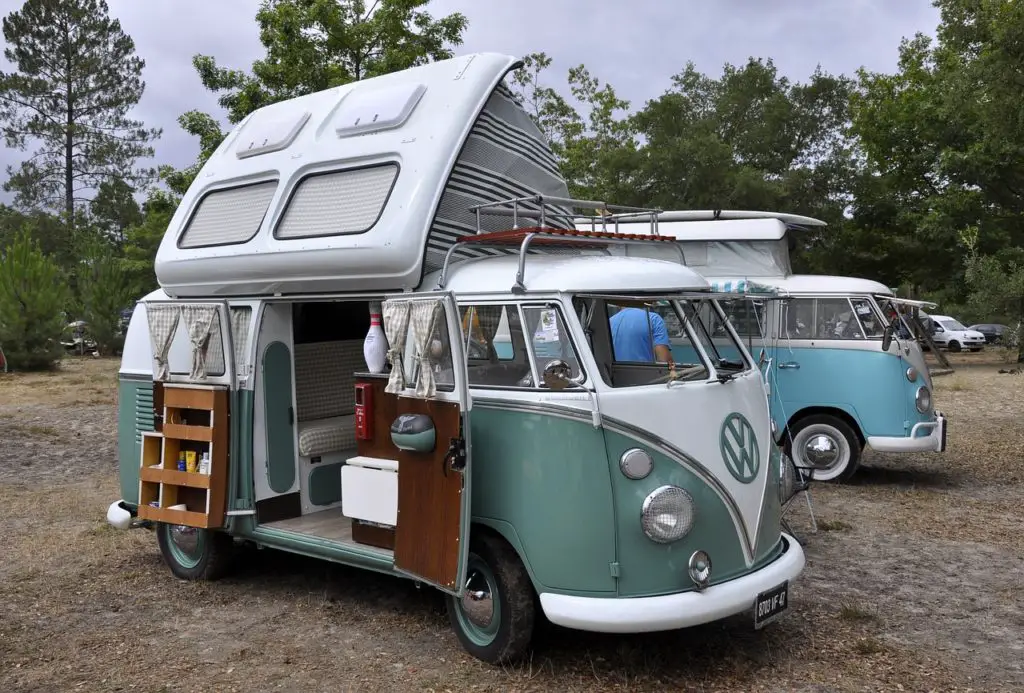
3. Think about things you value in your lifestyle.
Are you a keen cook? Do you require your morning shower before you can wake up properly? Think about your lifestyle and how you could implement it to van life.
For example, if you are a keen cook and decide to go for a normal low ceiling cargo van, think about how would you like cooking when sitting down, inside the van, or would you prefer it at the back, so you can stand up and utilize all the space possible. Not fun when it’s raining though!
This is why after trying both setups we decided to build our kitchen inside so making a cuppa in the evening, washing hands, brushing our teeth etc. would be easy inside, the doors closed (protects from mosquitoes as well!) – but we also had foldable table and transportable hob so we could take the kitchen outside on a good weather.
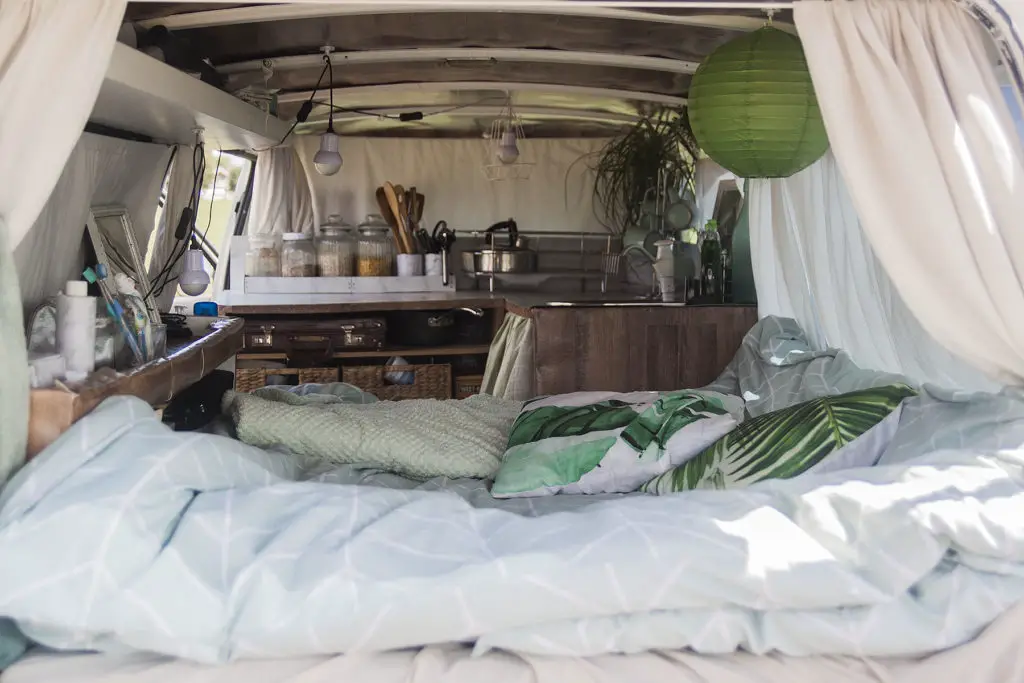
If a daily shower is important to you, consider building a shower inside your van. This of course requires a higher van and a lot of space, but even if you go for a small van you have plenty of options – a shower tent with a portable 12v shower works perfectly too. Whichever option you go for, remember you need a lot more water than you would have otherwise – the main reason why most van lifers take the advantage out of campsites, gyms and lakes and rivers. It is good to think about these things before you start your build, as fitting things like extra water tanks and showers is much more cumbersome afterwards!
4. Think about your social life in a van.
Are you planning on living in your van on your own, or with your partner, your pet(s), kids, a friend? Would you have friends coming over to stay with you sometimes?
This doesn’t only change your requirements for your space plan inside (the bed(s), does it transform into a table?) but for the seats in front, an extra equipment and, hear me out on this, for the possibilities for peace and privacy. Are you social and enjoy spending a lot of time together? Is your partner/friend like it too? When your only living space is in a van, you are middle of nowhere with nothing to do and it is raining cats and dogs out there, what is your plan?
How about social media? How important it is for you to stay connected? If it is, I would invest in mobile router with a hefty data plan. Could save those rainy days too! 😉
5. Think how easily things bother you.
As lovely and wonderful van life can be, it is not eternal sunshine. Everyone gets sick sometimes and I can assure you, it feels hundred times worse when you live in a van. Sometimes the weather is absolutely awful and you might feel like you are stuck inside a little box. Sometimes you can’t find a camping spot, sometimes you can’t sleep when your neighbors are playing guitar all night long or the there’s a lot of traffic close by. There is always a risk of thieves, sometimes you can’t find a shower for a few days. Would you be happy with all this? If you are unsure, you could always try hiring a camper van first and see if it is for you.
But whatever you decide, try it at least. It can be an absolutely amazing way of life.
